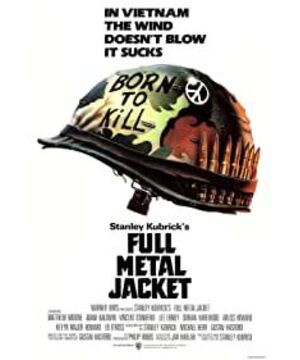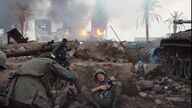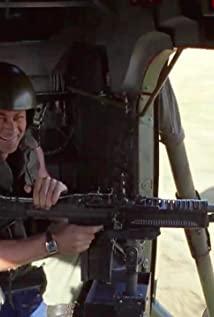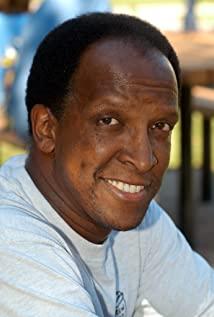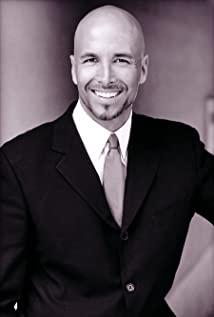The whole film has a strong anti-war sentiment, and the film is divided into two parts with spatial changes.
The first part introduces the training of the killing machine. What impressed me the most was the change in the expression on Chubby's face, from a silly Chubby who always smiled at first, to a cold, evil face. Many viewers can't bear to laugh when they see the swear words and the coach's scolding. It seems to be Kubrick's humor, but in fact, it is extremely fearful. The training camp is extremely oppressive to people, from physical to mental control. In the end, Chubby was driven crazy, and Chubby became a hateful killing machine, and then killed "my own person" - the instructor.
The second half goes directly to the battlefield. Kubrick's anti-war thoughts are vividly displayed in this part. The soldiers don't know why they are fighting. They are still young boys who should be unscrupulous on the grass, on the bed, and in the classroom. Make love with the girl in Pink panties that I love, but now I can only hug my gun tightly, and risk my life wherever I go. One of the soldiers said that the state deprived us of our freedom and wanted to give it to the Vietnamese, but the Vietnamese did not want it. The Vietnamese wanted life more, and life was precious. In fact, he was like this throughout the Vietnam War. Anti-war sentiment at home and abroad is high, but young boys are sent to the battlefield in batches. Because of this meaningless and ultimately failed war, these boys have paid an unimaginable price, but they have not received anyone's sympathy. With help, they lead the way for selfish war madmen and become disdainful "tyrants". In the second half, what impressed me most was the Vietnamese sniper who killed three American soldiers and fought alone. It was indeed a young girl. I lamented her marksmanship and her courage, and deeply reflected on the evil of war.
View more about Full Metal Jacket reviews


